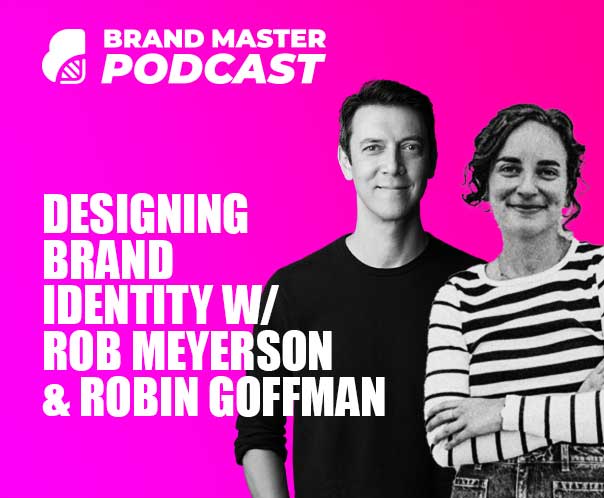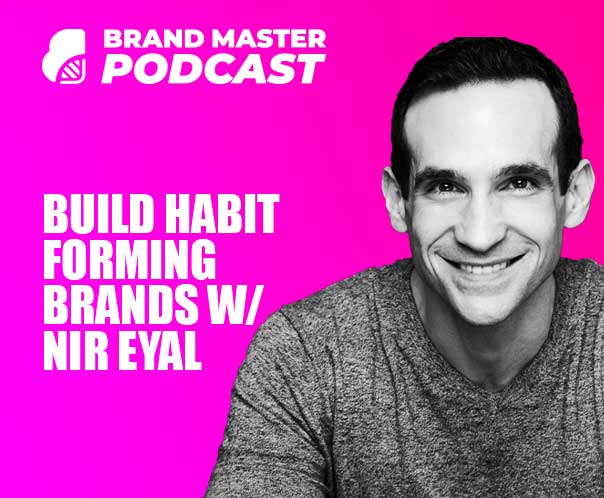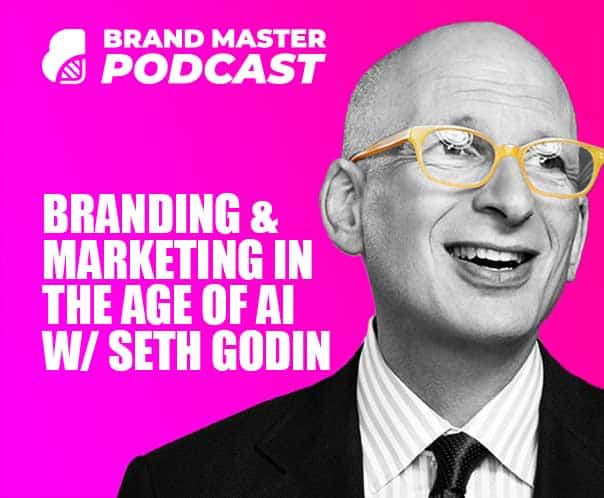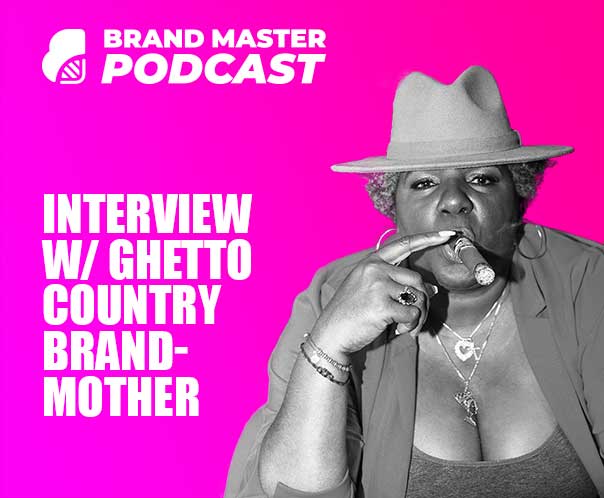I had the pleasure of sitting down with a distinguished guest, Dr. Aaron Ahuvia. If you're curious about the realms of non-interpersonal love and its profound impact on consumer behavior, you're in for a treat.
Dr. Ahuvia is not just an academic authority; he's a trailblazer who has spent more than two decades shaping our comprehension of love in the consumer landscape.
From his groundbreaking research on a unifying theory of love across diverse objects to his spot among the top 20 influential scientists in the realm of consumer behavior in the U.S., his journey has been nothing short of remarkable.
His insights have graced the pages of renowned publications like The New York Times and The Wall Street Journal, and he's even shared his wisdom on the stages of The Oprah Winfrey Show.
With a prestigious career spanning prestigious institutions including the University of Michigan and Northwestern's Kellogg Graduate School of Management, Dr. Ahuvia's contributions have been pivotal in exploring the delicate fusion of love and commerce.
In today's captivating conversation, we'll dive deep into
The profound impact of user experience on brand affinity.
We'll explore strategies that bridge the chasm between objectification and authentic human connections.
Uncovering the secrets to cultivating fervent brand enthusiasts through the power of passion.
If you're eager to unearth the secrets of nurturing profound bonds with your customers, and if you're ready to glean insights from a luminary in the realm of consumer love and happiness, then you won't want to miss this article.
Passions and Brands: Exploring the Interplay of Identity and Appeal
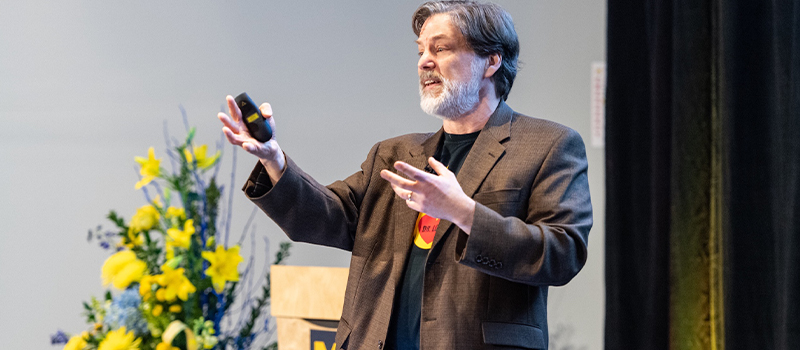
Stephen
I'm truly intrigued by the realm you specialize in – the intertwining of our passions and their role in shaping our identities.
This concept resonates deeply with my focus on branding and brand development.
Essentially, our goal is to establish a connection between a business entity, essentially an inanimate construct, and a community of individuals, all while enhancing the allure of the business.
Before we delve into the intricacies of your expertise, could you provide a brief overview of your journey into this field and how you arrived at your current position?

Aaron Ahuvia
During my time in the PhD program at Northwestern University's Kellogg School of Business, I found myself engrossed in a captivating journey.
The concept that everything is intertwined with marketing, as proposed by the renowned Professor Philip Kotler, particularly struck a chord with me.
I was single at the time, and amidst Professor Kotler's teachings, I began contemplating the connections between passions and identity formation.
This led me to a unique perspective on branding and brand building, where our aim is to forge a bridge between a business entity and its potential audience.
Delving into the heart of this concept, I embarked on a venture that saw me collaborating with Professor Mara Adelman from the Communications Department.
Exploring the burgeoning realm of dating services in the nascent stages of internet culture.
Our research thrived, culminating in four pivotal papers that examined dating services from both business and psychological angles. We even had the honor of discussing our findings on The Oprah Winfrey Show.
However, as the prospect of pursuing a career as a marketing professor arose, I recognized the need to pivot my focus.
With a deep-rooted understanding of the psychology behind interpersonal love, gleaned from my study of dating services, I embarked on an uncharted path.
This led me to the unexplored territory of brand affection, a concept that intrigued me as no one had yet bridged the gap between the psychology of human attraction and our connection with brands.
As I delved into this new realm, I uncovered an astonishing gap in the scholarly discourse—an absence of empirical work connecting the dots between love for products and love for people.
My pioneering research gained traction, and with the collaboration of Barbara Carroll, I authored a groundbreaking paper on "brand love," igniting a surge of interest and further research in the field.
Over time, the landscape evolved, and my exploration culminated in a new perspective, detailed in my book titled
"The Things We Love: How Our Passions Connect Us and Make Us Who We Are."
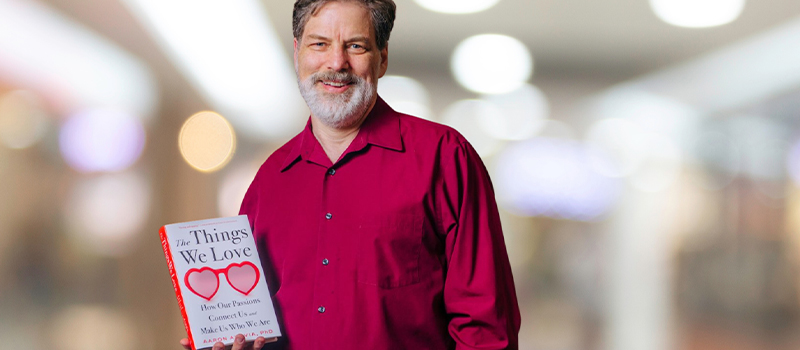
Spanning a decade in the making, this book compiles not only my decades-long research but also my evolving ideas.
The theory it presents fundamentally shifts our understanding of the connection between passion, identity, and brand engagement.
In the realm of brand management, a common sentiment emerged—a desire for deeper customer connections, unwavering brand loyalty, and fervent advocacy.
However, despite relentless efforts, many brand managers found themselves frustrated by the elusive nature of these objectives.
Through my journey, I've discerned why these endeavors often fall short and have uncovered strategies to transform brand engagement.
In a world brimming with options, my research illuminates the profound aspects that truly foster brand love, or whatever term resonates—a higher level of brand involvement, enthusiasm, or dedication.
My findings provide actionable insights that address the gap between aspiration and realization, guiding brand managers toward a realm of deeper, lasting connections with their audience.
PRO Brand Strategy BluePrint
Build Brands Like A Pro Brand Strategist

Unlocking Human Branding: Beyond Visuals to Genuine Connection

Stephen
Delving deep into the intricacies of this subject truly excites me, as it's an area I've thoroughly explored and grown passionate about.
Amidst various avenues of branding, this particular facet ignites my enthusiasm.
I find joy in synthesizing my own perspectives rather than merely echoing others' viewpoints.
Drawing insights from diverse sources, I create a tapestry of ideas and personal viewpoints. Among the concepts that profoundly captivate me is the notion of the "human brand."
This captivating perspective posits that the brands we construct are essentially human entities. After all, our ultimate objective is to establish connections with real people.
This perspective allows us to transpose aspects of human experience onto brands, creating a rich tapestry of meaning.
Consider loyalty and love—qualities we aim to cultivate in our brand-consumer relationships. A simple analogy can be drawn: to receive love from a person, you offer love in return.
Translating this to branding, when we view brands as human-like entities, the approach remains consistent.
Our shared human experiences become valuable tools in establishing loyalty and connection.
The essence of the "human brand" philosophy lies in recognizing that beyond visuals and messages, the core of brand-building centers on constructing a relatable human presence.
Just as we navigate our own relationships, we can apply these principles to brand-consumer interactions, tapping into our collective reservoir of human understanding.
In essence, the philosophy of the human brand underscores the idea that we're fostering connections between living entities, transcending the conventional boundaries of business and amplifying the resonance between brands and people.
What are your thoughts and insights on this compelling notion of human branding?

Aaron Ahuvia
The complexity of the topic notwithstanding, there are several key insights to glean from this discourse.
It is evident that while there exists a consensus among consultants in this field regarding certain viewpoints, a fresh perspective has emerged challenging established wisdom.
Notably, the notion that individuals form connections with brands akin to human relationships has been identified as a prevailing but ultimately flawed belief.
The prevailing misconception can be encapsulated by a quote that rallied many around the idea of "brand love."
This movement equated consumer-brand relationships to human connections, a comparison that, upon scrutiny, falters.
Crucially, the human brain harbors an inherent mechanism that effortlessly segregates stimuli into two categories: people and everything else.
The subsequent processing of these categories triggers diverse cognitive approaches.
To illustrate, observing a human face activates distinct neural regions compared to viewing an object, such as a car.
However, the concept goes beyond mere localization to encompass differing neural networks engaged in varied modes of thought.
While certain hormones like oxytocin contribute to human bonding, leading to potential bonds with objects, a fundamental distinction arises.

This distinction pertains to the subconscious sorting mechanism at play.
The brain assesses stimuli as either people or non-person entities, with oxytocin-fueled bonding reserved for the former.
This nuanced categorization is the reason why the term "objectification" emerged long before neuroscience confirmed its biological underpinning.
Such observations highlight that societal norms or upbringing are not solely responsible for influencing our cognitive categorizations; rather, the brain intrinsically orchestrates these divisions.
Crucially, the fallacy of assuming brands can be loved like people becomes apparent when scrutinizing situations of objectification. Instances wherein individuals perceive themselves as objectified lead to the realization that love remains absent from such interactions.
Fundamentally, the brain's object-oriented thinking precludes the formation of genuine emotional bonds.
However, this does not imply an inability to develop affection for objects.
The crux lies in recognizing that objects can occasionally be perceived through the lens of social thinking, effectively transposing them into the sphere of human-like consideration.
This cognitive phenomenon has profound implications for brand-building strategies.
By shattering the confines of objectification and facilitating a shift towards social thinking, brand builders can foster a unique bond, analogous to human relationships, thus transcending the limits that have hindered their endeavors.
Explore Brand Strategy
Programs & Tools
Transcending Objectification: Authentic Branding and Human Connection

Stephen
Is it accurate to assert that a prominent error in branding involves business owners reducing their brand to visual elements, like logos and websites, thus objectifying it?
In contrast, authentic branding transcends such objectification by fostering a deeper understanding.
This distinction parallels the divergent chemical reactions evoked when viewing cars and humans.
The noteworthy disparity lies in the potential for dialogue with brands, affording the opportunity for comprehension, empathy, and connection through the release of oxytocin.
While brands are inherently intangible, is it plausible to bridge the gap between objectification and the realm of human connection, as suggested, and does your research corroborate this perspective?

Aaron Ahuvia
In this insightful discussion, the focus centers on the concept of building strong brand connections by tapping into the innate human tendency to relate more intimately with other individuals rather than with inanimate objects.
The dialogue opens by underlining the significance of interactive feedback in fostering this bond.
It highlights the primal biological mechanism behind categorizing entities as either people or non-people and how this mechanism has evolved across various species to establish familial associations.
Delving into the origin of this mechanism, it's pointed out that it predates the existence of anthropomorphic machines and computers, possessing a simplicity in its sorting process.
The idea is illuminated that if something closely resembles a person physically or behaves in a human-like manner, the brain naturally interprets it as a person, transcending its object status.
This interaction-driven classification is regarded as a potent tool for cultivating brand affection, effectively molding the brand into a person-like entity in consumers' minds.
The discussion transitions to the notion of "person brands" or instances where individuals, often entrepreneurs, forge a brand identity intertwined with their personal essence.
This entails branding oneself based on unique traits, even adopting playful monikers like "Dr. Brand Love" to characterize the individual brand persona.
The underlying principle remains that people primarily connect with people, a notion emphasized by entrepreneurs who recognize the driving force of personal relationships in propelling their businesses forward.
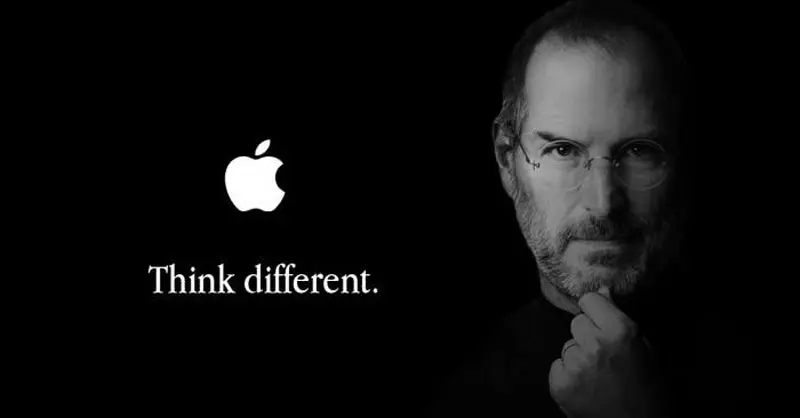
A parallel is drawn to the concept of "super fans," individuals with fervent adoration for specific brands or entities.
This phenomenon is often observed in the entertainment industry, where people naturally establish deep connections with human performers.
The conversation contrasts this with building super fans for organizations or brands that lack inherent human attributes.
The challenge lies in nurturing a person-like association in the minds of consumers towards these non-human entities, akin to how people feel about human celebrities.
To further illustrate, practical examples are shared.
The experience of utilizing software like Descript is recounted, initially evoking a sense of super fan excitement due to its utility, but later fading as it remains an object devoid of human connection.
In contrast, the personal engagement with a professional video editor elicits a lasting relationship that garners recommendations.
The discussion concludes by presenting the cases of Apple and Dyson, two brands that have successfully achieved passionate followings.
The common thread between them is the strong association with individuals: Steve Jobs for Apple and Dyson for Dyson.
This illustrates how the human element, even in the absence of direct personal interaction, can foster enduring brand loyalty and affection.
Overall, the discourse accentuates the power of invoking human-like qualities in branding to forge deep connections with consumers, thereby transforming brands from mere objects to cherished entities.
Passion's Impact on Brand Bonds

Stephen
How significant do you believe the role of passion is in establishing connections with non-personal and inanimate brands?
Especially when we consider the success of brands like Red Bull that have managed to forge strong emotional bonds despite being essentially purveyors of products such as sugar water?
While we often see super fans emerging around individuals in fields like sports and music, these individuals often align with passions people already possess.
Can non-human brands similarly enhance their appeal and build relationships by tapping into consumer passions?
For instance, Red Bull has effectively elevated its status by associating itself with the adrenaline-fueled lifestyle and connecting with consumers' passions, even though its core product is unrelated to these pursuits.
This example underscores the essence of branding, where a brand can transform its identity by leveraging perceptions and aligning with passions to foster emotional connections.
Considering this, how much weight do you attribute to passion in the process of forming such profound brand connections?

Aaron Ahuvia
Passion holds a significant role in branding strategies, although the concept of brand love doesn't universally apply to all types of brands.
While many might assume that brand love is the ultimate goal, this approach doesn't suit every situation.
Certain brands are better suited for alternative strategies.
The key to making people genuinely love a brand lies in getting their brains to associate it with a personal connection.
However, this isn't the only path to marketing success.
Some brands can excel by positioning themselves as objects in consumers' minds and competing effectively within that framework.
The viability of these strategies depends on the nature of the brand.
For instance, industries that naturally evoke passion among consumers, even if it's only a subset, find it easier to foster brand love.
This isn't the case for products or services that people are less emotionally invested in.
Additionally, tapping into people's attention is easier when the brand aligns with activities or sports they're enthusiastic about.
This is a crucial aspect of building brand loyalty.
At a psychological level, falling in love with a brand or object mirrors the process of incorporating it into one's identity. This is true for interpersonal relationships and also extends to products or brands.
Authenticity plays a pivotal role in this process, encompassing both the brand's alignment with its niche and its compatibility with an individual's personality.
This authenticity can evoke passion, making individuals feel a strong connection to the brand and leading them to integrate it into their sense of self.
For instance, the energy drink brand Red Bull successfully embodies this dynamic.
Beyond being a mere sugary beverage, Red Bull is formulated with caffeine and taurine, making it resonant with the high-energy, extreme sports culture it associates with.
This authenticity resonates with consumers who share a passion for these activities, prompting them to see Red Bull as a genuine reflection of their identity.
In conclusion, while aspiring for brand love might work wonders for some brands, it's not a one-size-fits-all strategy.
Tailoring the approach to the brand's nature and target audience is vital. Crafting an authentic connection and embedding the brand in consumers' identities are critical factors for successful brand-building endeavors.
Personality's Impact on Brand Affinity

How significant is the role of personality in our affinity for brands?
This topic has been on my mind for a while, and I've often discussed it.
The idea is that we aren't merely purchasing brands; we're actually embracing and adopting them.
This concept centers on the notion that brands become an expression of our own identities. A prime illustration I particularly admire is diesel jeans.
Just as Red Bull associates itself with an adrenaline-fueled lifestyle, diesel jeans establish a similar connection.
The diesel brand fascinates me due to its alignment with self-identity.
If one were to encapsulate the essence of the diesel brand with an icon, the middle finger would aptly symbolize its defiance against societal norms.
This nonconformist attitude resonates with people, leading them to identify with the brand.
While the clothing's style is undoubtedly a factor, it's the compatibility of core personality traits that truly drives this connection.
How much weight do you assign to personality when considering our emotional attachment to a brand?

Aaron Ahuvia
In the context of brands employing a strategy centered on cultivating brand love and fostering strong engagement, the significance of brand personality becomes evident.
The term "personality" encompasses various facets, notably including the brand's stance on political and social matters.
An exemplary instance of this is Diesel, whose brand personality is synonymous with challenging mainstream conventions, symbolized by the iconic middle finger.
This isn't merely about personality, but a substantial position on issues of significance.
Another illustration lies in Patagonia, renowned for authentically advocating environmental causes.
This alignment with values deeply resonates with specific consumer segments.
Brand love aligns exceptionally well with mission-driven or values-centric brands.
These brands often seek to make a meaningful impact beyond financial gains, which may incur higher costs.
Consequently, they rely on consumers' willingness to pay a premium for their brand.
Diesel effectively leverages brand love for this purpose, even if not overtly pro-social.
This underscores the pivotal role of brand personality in such endeavors.
Fostering Brand Love: Key Strategies

Stephen
Amidst the discourse on brand love and the preceding inquiries, it seems these discussions have been a gradual buildup, akin to flirting, toward the ultimate question that holds everyone's attention.
How can we effectively cultivate adoration for our brand within our audience?

Aaron Ahuvia
In understanding the dynamics of building a beloved brand, we can break down the process into three essential steps.
The initial phase revolves around the foundation of quality and performance, an aspect that should resonate universally.
Just as nobody embarks on a romantic relationship seeking mediocrity, brands must offer excellence to captivate their audience. However, this cornerstone alone isn't the entire equation.
Just as a loaf of cinnamon raisin bread requires more than flour, brand love demands more than product quality.
Much like the flour, performance serves as the primary ingredient, but to create a delectable attraction, additional elements come into play.
Comparable to the cinnamon and raisins enhancing the bread's taste, chemistry and user experience infuse the brand with allure.
Yet, hidden within this analogy is another critical ingredient – yeast. In the context of branding, yeast signifies prompting consumers to perceive the brand as a person, activating a deeper connection.
Without this crucial step, marketing efforts are likely to falter.
Moreover, this discussion underscores that having a quality product is merely table stakes. Just as one can't partake in a card game without chips, a brand must have a product or service to even enter the competitive arena.
This is where the second step, chemistry, comes into play.
Comparable to the sparks that define a successful date, chemistry within a brand journey entails creating positive interactions and eliminating pain points.
The goal is to cultivate experiences that range from pleasant to exceptionally satisfying, mirroring the highs and lows of human interaction.
The third and final step is an endeavor to personify the brand within consumers' minds.
This involves three fundamental approaches:
first, transforming the brand into an anthropomorphic entity, employing elements that remind consumers of a person.
Second, linking the brand with interpersonal relationships, such as connecting it to friends, spokespersons, or brand communities.
Third, integrating the brand with the consumer's self-identity, where the brand becomes a part of who they are.
Each of these routes serves to nurture a personal bond between the consumer and the brand.
In summation, building a beloved brand entails a journey guided by three key steps:
Beginning with the foundation of quality, progressing to the establishment of positive chemistry through user experience, and ultimately forging a deep emotional connection by personifying the brand.
Through these intricate layers, brands can transcend the realm of transactional engagement, instead becoming cherished companions in the lives of their consumers.
Chemistry of Brand Love: Insights and Future Directions

Stephen
Your structured approach resonates deeply with me, highlighting the sequential nature of these steps that essentially tap into the fundamental human chemicals we seek.
The connections we establish and the associations we create indeed serve as the catalyst for what you referred to as the illumination of brand love.
Analogies often guide our discussions in branding and marketing, and I particularly appreciate the notion that marketing initiates the audience's interest, while branding sustains their engagement. Your insights have been incredibly enlightening.
As we delve into the realm of branding and marketing, I'm intrigued by your current interests and expanding expertise.
Given your expertise in neural connections, neuroscience, and the intricate chemistry involved in forging these connections, I'm curious about your ongoing pursuits.
What are you currently exploring or immersing yourself in?
What aspects do you foresee expanding within your zone of genius, which could potentially reshape the branding landscape in the future?

Aaron Ahuvia
Currently, I'm immersed in a substantial project that explores the implications of our affinity for brands from a consumer well-being and ethical standpoint.
This endeavor delves into the intricate relationship between business ethics and the broader social context.
The core question revolves around whether the strong bond consumers form with brands is ultimately beneficial, neutral, or detrimental. It's a journey into deciphering the impact of brand love on individuals.
As I venture into this analysis, I encounter a dual perspective. Fortunately, the evidence suggests that cultivating affection for brands can be advantageous.
Although desiring material possessions can often lead to discontentment, fostering a sense of emotional connection with companies or brands, provided these relationships are built on trust and respect, can contribute positively to individuals' self-perception and well-being.
This inquiry also compels me to explore the mechanics of engendering brand love.
I've been devotedly refining the three-step process that orchestrates this phenomenon.
My research predominantly entails delving into foundational studies, which admittedly might appear intricate and technical to most audiences, but form the bedrock of understanding.
On-Demand Digital Program
Brand Master Secrets
Make the transition from hired-gun to highly valued brand strategist in less than 30 days. The systems, frameworks and tools inside this comprehensive program are all you need to level up.







